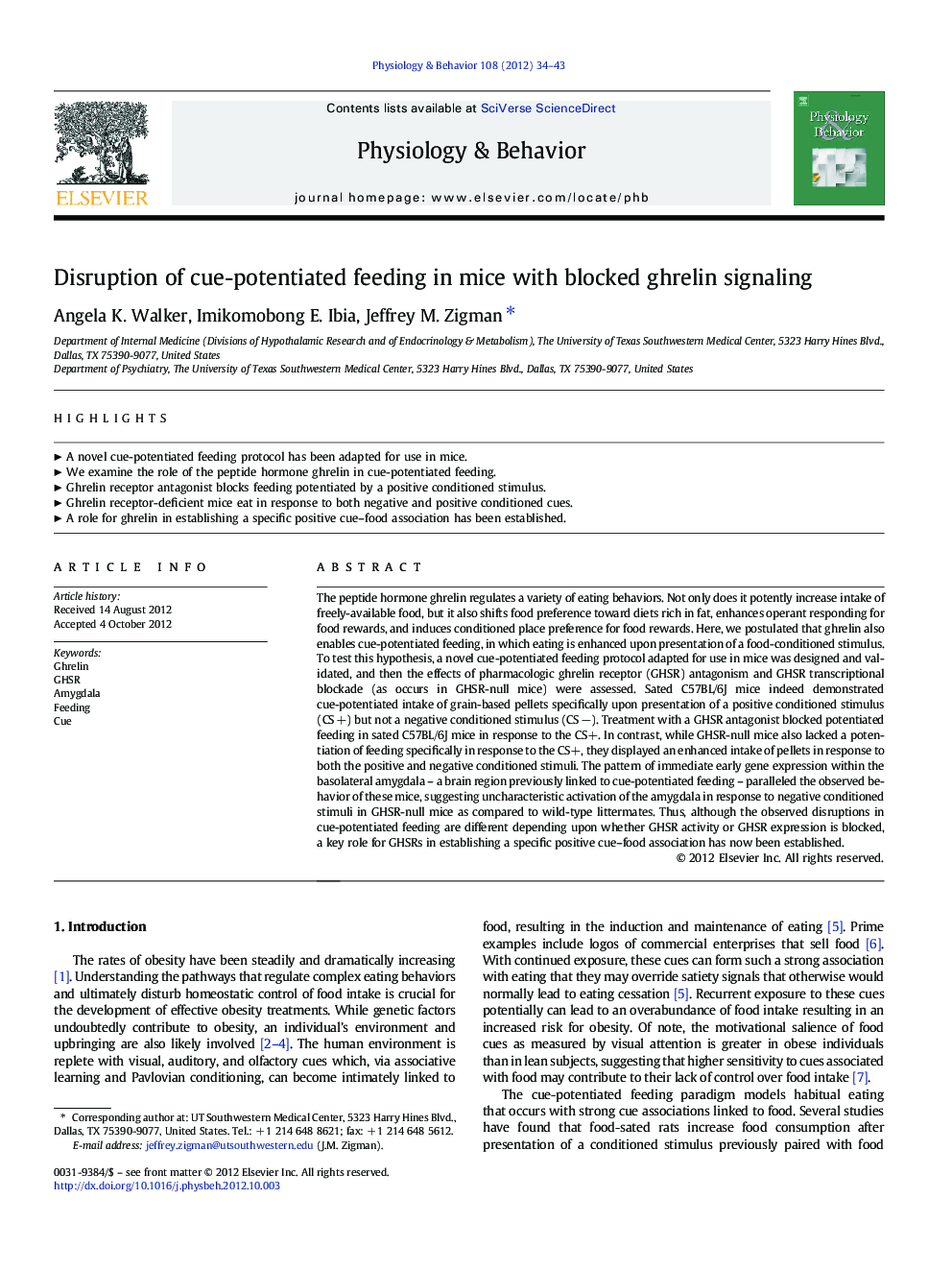| کد مقاله | کد نشریه | سال انتشار | مقاله انگلیسی | نسخه تمام متن |
|---|---|---|---|---|
| 2844502 | 1571205 | 2012 | 10 صفحه PDF | دانلود رایگان |

The peptide hormone ghrelin regulates a variety of eating behaviors. Not only does it potently increase intake of freely-available food, but it also shifts food preference toward diets rich in fat, enhances operant responding for food rewards, and induces conditioned place preference for food rewards. Here, we postulated that ghrelin also enables cue-potentiated feeding, in which eating is enhanced upon presentation of a food-conditioned stimulus. To test this hypothesis, a novel cue-potentiated feeding protocol adapted for use in mice was designed and validated, and then the effects of pharmacologic ghrelin receptor (GHSR) antagonism and GHSR transcriptional blockade (as occurs in GHSR-null mice) were assessed. Sated C57BL/6J mice indeed demonstrated cue-potentiated intake of grain-based pellets specifically upon presentation of a positive conditioned stimulus (CS +) but not a negative conditioned stimulus (CS −). Treatment with a GHSR antagonist blocked potentiated feeding in sated C57BL/6J mice in response to the CS+. In contrast, while GHSR-null mice also lacked a potentiation of feeding specifically in response to the CS+, they displayed an enhanced intake of pellets in response to both the positive and negative conditioned stimuli. The pattern of immediate early gene expression within the basolateral amygdala – a brain region previously linked to cue-potentiated feeding – paralleled the observed behavior of these mice, suggesting uncharacteristic activation of the amygdala in response to negative conditioned stimuli in GHSR-null mice as compared to wild-type littermates. Thus, although the observed disruptions in cue-potentiated feeding are different depending upon whether GHSR activity or GHSR expression is blocked, a key role for GHSRs in establishing a specific positive cue–food association has now been established.
► A novel cue-potentiated feeding protocol has been adapted for use in mice.
► We examine the role of the peptide hormone ghrelin in cue-potentiated feeding.
► Ghrelin receptor antagonist blocks feeding potentiated by a positive conditioned stimulus.
► Ghrelin receptor-deficient mice eat in response to both negative and positive conditioned cues.
► A role for ghrelin in establishing a specific positive cue–food association has been established.
Journal: Physiology & Behavior - Volume 108, 25 December 2012, Pages 34–43